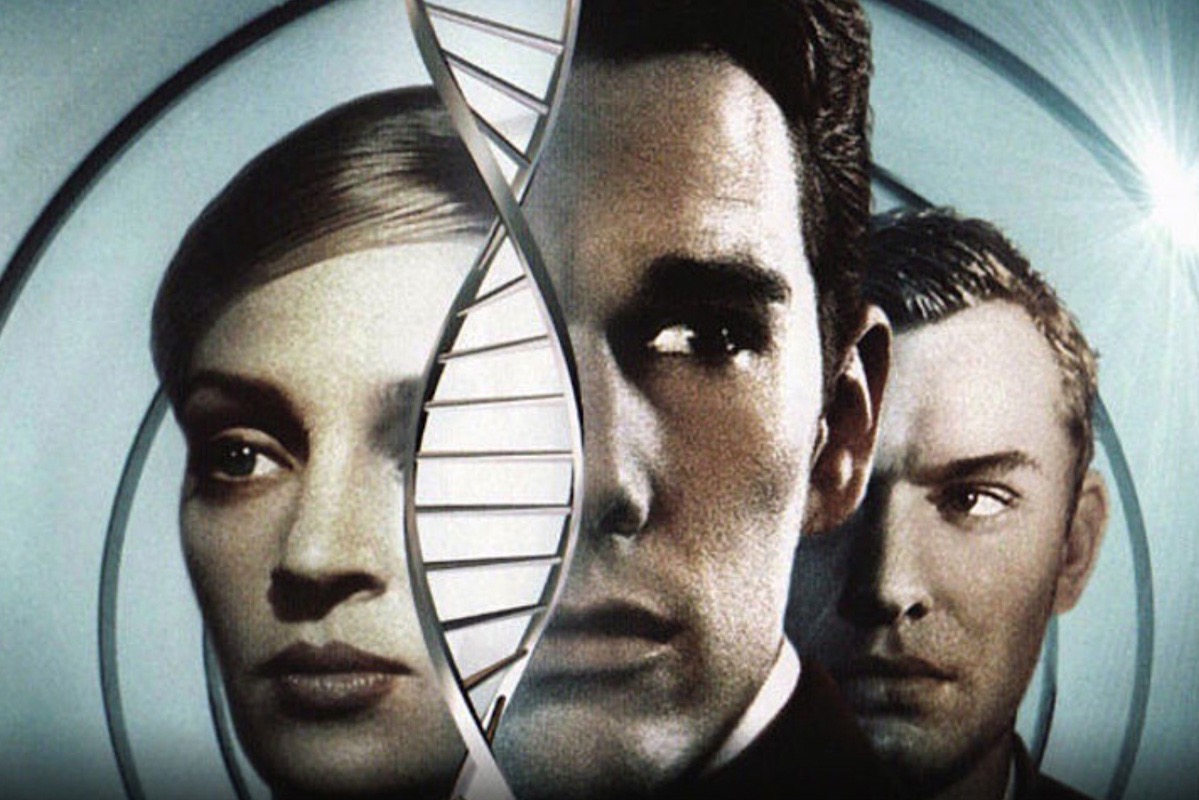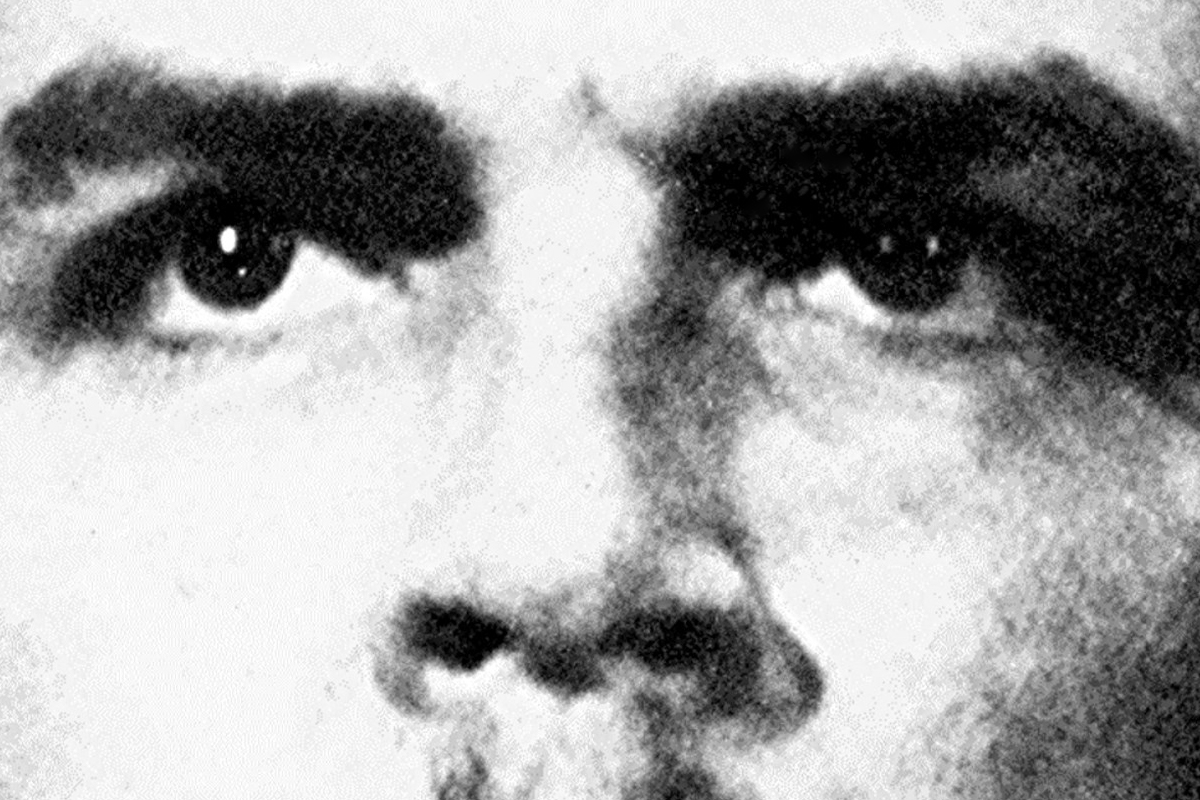Bioethics
How Prophetic Was Gattaca?
Gattaca was prophetic, but not quite in the way Niccol intended.

Dystopian science fiction films often have the veneer of plausibility. For example, the premise of an overpopulated world (Soylent Green), or a deep freeze earth (The Day After Tomorrow), or an infertility epidemic (Children of Men), generate voyeuristic horror but rarely possess the credibility to elicit anxiety of a real world, highly probable outcome. The 1997 film Gattaca, written and directed by Andrew Niccol, is an exception. Technology has now caught up with Niccol’s dystopian vision of a society where every member is categorized and determined by their genetic origin. Last year a Chinese bioengineer announced the germline editing and live birth of twin girls using CRISPR technology.
In the world of Gattaca, preimplantation screening and genetic engineering have generated a culture of discrimination based on genomic scores. The story’s hero, Vincent (Ethan Hawke), has the bad luck of being conceived the old-fashioned way, his genome left to the crapshoot of meiosis. His genome is read to his parents at birth: neurological condition: 60 percent; probability of manic depression: 42 percent; probability of heart disease: 99 percent: life expectancy: 30.2 years. In this brave new world, Vincent is labeled an “In-Valid,” a human not genetically selected, screened, and engineered—a second-class minority, which prohibits any chance of him fulfilling his ambition of becoming an astronaut. The only job available for his kind is janitor. Not deterred by his genomic handicap, Vincent strikes a deal with Jerome (Jude Law), a “Valid” of impeccable pedigree, but now a paraplegic because of an accident. Vincent impersonates Jerome using his biological specimens—blood, urine, and hair—to deceive the ubiquitous DNA-scanning devices. With his new DNA fingerprint, Vincent becomes an astronaut-in-training and is days away from his dream of space flight when the murder of an executive threatens to expose his identity.
Gattaca’s depiction of a dystopian society has uneasily informed debate on public policy. For example, in 2003 an Australia Law Reform Commission produced a 1,100-page document in which Gattaca is quoted several times as a starting point for a discussion on “the ethical, legal and social implications of the New Genetics.” In a 2013 speech, US Senator Rand Paul referenced Gattaca as a warning to argue for the passage of legislation he introduced called the Life at Conception Act.
The film’s hold on the popular imagination was confirmed again by two recently published books: Blueprint: How DNA Makes Us Who We Are by Robert Plomin and Innate: How the Wiring of our Brains Shapes Who We Are by Kevin Mitchell. Both books examine the genetic influence on variation in different psychological traits between individuals and both discuss whether a Gattaca-like dystopia is in our future. The society depicted in the film treats genes as deterministic, an idea that both Plomin and Mitchell are at pains to distance themselves from, and, curiously, that is the theme of the film too: “After all, there is no gene for fate,” says Vincent.
According to Mitchell, the manner in which genes go about building an organism is in part affected by what engineers call noise. There is a randomness to neural development, subjecting the process to tiny random perturbation. Identical twins share the same DNA but are not completely identical. Even the two sides of our bodies, based on the same plan but executed independently, reveal slight differences. Mitchell’s claim is that much of what is labeled environmental “is intrinsic to each person, arising from inherent randomness in the process of brain development.” Plomin, for his part, repeatedly uses the word “probabilistic” to describe the effect of our genome on our destiny, contrasting this with “deterministic.”
Andrew Niccol goes further than this and gives the impression that general cognitive ability—one of the most heritable psychological traits—isn’t influenced by genetics in the slightest, let alone determined. In an early scene, we learn that Vincent, impersonating Jerome, has programmed computer code flawlessly “not one error in a million keystrokes” for his upcoming space mission. Somehow, in spite of his apparently average genetic scores, Vincent is able to impersonate Jerome who has “an IQ off the register.”

That makes you wonder why the authorities in Gattaca set such store by polygenic scores. What does it matter if Vincent was conceived in the back of a car if he can mimic a genetically-engineered god? The film glosses over this contradiction, implying that Vincent’s compulsive study of a “celestial navigation textbook” is all it took for him to meet the job requirements. But if Andrew Niccol was hoping this point of view would eventually be vindicated by genetic research, he was mistaken. According to Plomin, more than 50 years of behavioral genetics have shown that “…genetic differences between people account for about half of their differences in tests of intelligence.” Mitchell states that “…intelligence is ‘genetic,’ in the sense that it relies on a complex program encoded in our genomes and can be seriously affected by mutations that compromise that program.”
So Gattaca was prophetic, but not quite in the way Niccol intended. He created a dystopia that was based on what he thought of as a misunderstanding about the influence genes have on our destinies. But in fact, it wasn’t a misunderstanding; it’s been borne out by genetic research. The overlords of the society Niccol depicts are actually right about the science and he was wrong. What Niccol got wrong is that a society in which parents decide to fertilize numerous embryos and decide which one to implant and take to term, as they do in Gattaca, won’t be as dystopic as he imagines because genetically-engineered inequality won’t necessarily lead to unequal treatment, any more than randomly-generated genetic inequality will. As Plomin says, “[T]he American founders did not mean that all people are created identical…equal does not mean identical. If everyone were identical, there would be no need to worry about equal rights or equal opportunity. The essence of democracy is that people are treated fairly despite their difference.”
Which is not to deny that gene editing will confront society with unprecedented ethical dilemmas. A two caste Gattaca-like society is not out of the question, but only if we allow it to develop. It’s entirely possible that while initial access to genome engineering will be restricted to the super rich, government subsidies could eventually make it universally accessible. Gattaca is an excellently-crafted film, but its vision of genetic discrimination shouldn’t be mistaken for an inevitable future.






